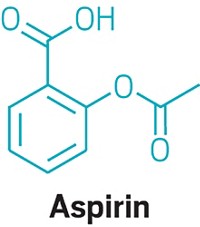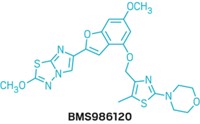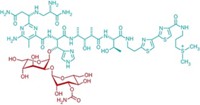Advertisement
Grab your lab coat. Let's get started
Welcome!
Welcome!
Create an account below to get 6 C&EN articles per month, receive newsletters and more - all free.
It seems this is your first time logging in online. Please enter the following information to continue.
As an ACS member you automatically get access to this site. All we need is few more details to create your reading experience.
Not you? Sign in with a different account.
Not you? Sign in with a different account.
ERROR 1
ERROR 1
ERROR 2
ERROR 2
ERROR 2
ERROR 2
ERROR 2
Password and Confirm password must match.
If you have an ACS member number, please enter it here so we can link this account to your membership. (optional)
ERROR 2
ACS values your privacy. By submitting your information, you are gaining access to C&EN and subscribing to our weekly newsletter. We use the information you provide to make your reading experience better, and we will never sell your data to third party members.
Biological Chemistry
How Aspirin Reduces Colon Cancer Risk
The common painkiller’s ability to help prevent colon cancer is linked to high levels of an enzyme
by Sarah Everts
April 28, 2014
| A version of this story appeared in
Volume 92, Issue 17
A variety of studies have suggested that taking aspirin can decrease the risk of colon cancer. But the mechanism by which the common painkiller exerts its protective effect has eluded researchers. A team led by Andrew T. Chan of Massachusetts General Hospital and Sanford D. Markowitz of Case Western Reserve University now reports that aspirin’s colon cancer protection is linked to levels of an enzyme called 15-PGDH (Sci. Transl. Med. 2014, DOI: 10.1126/scitranslmed.3008481). The researchers note that the enzyme plays a role in the degradation of prostaglandins, which are important lipid messenger molecules that can also be involved in certain colon cancers. Aspirin appears to reduce prostaglandin levels by inhibiting the activity of another enzyme involved in prostaglandin synthesis. The researchers examined tissue samples from 270 cases of colon cancer stemming from two studies that tracked aspirin use of 128,000 people for three decades. They found that people who consumed at least two 325-mg aspirin tablets per week lowered their risk of colon cancer by 50%—but only if their 15-PGDH levels were higher than average. The finding could help identify people who can reduce their colon cancer risk with aspirin. Likewise, identifying individuals who won’t benefit from aspirin’s protection could help them avoid the drug’s side effects, which include gastrointestinal bleeding and ulcers.





Join the conversation
Contact the reporter
Submit a Letter to the Editor for publication
Engage with us on Twitter